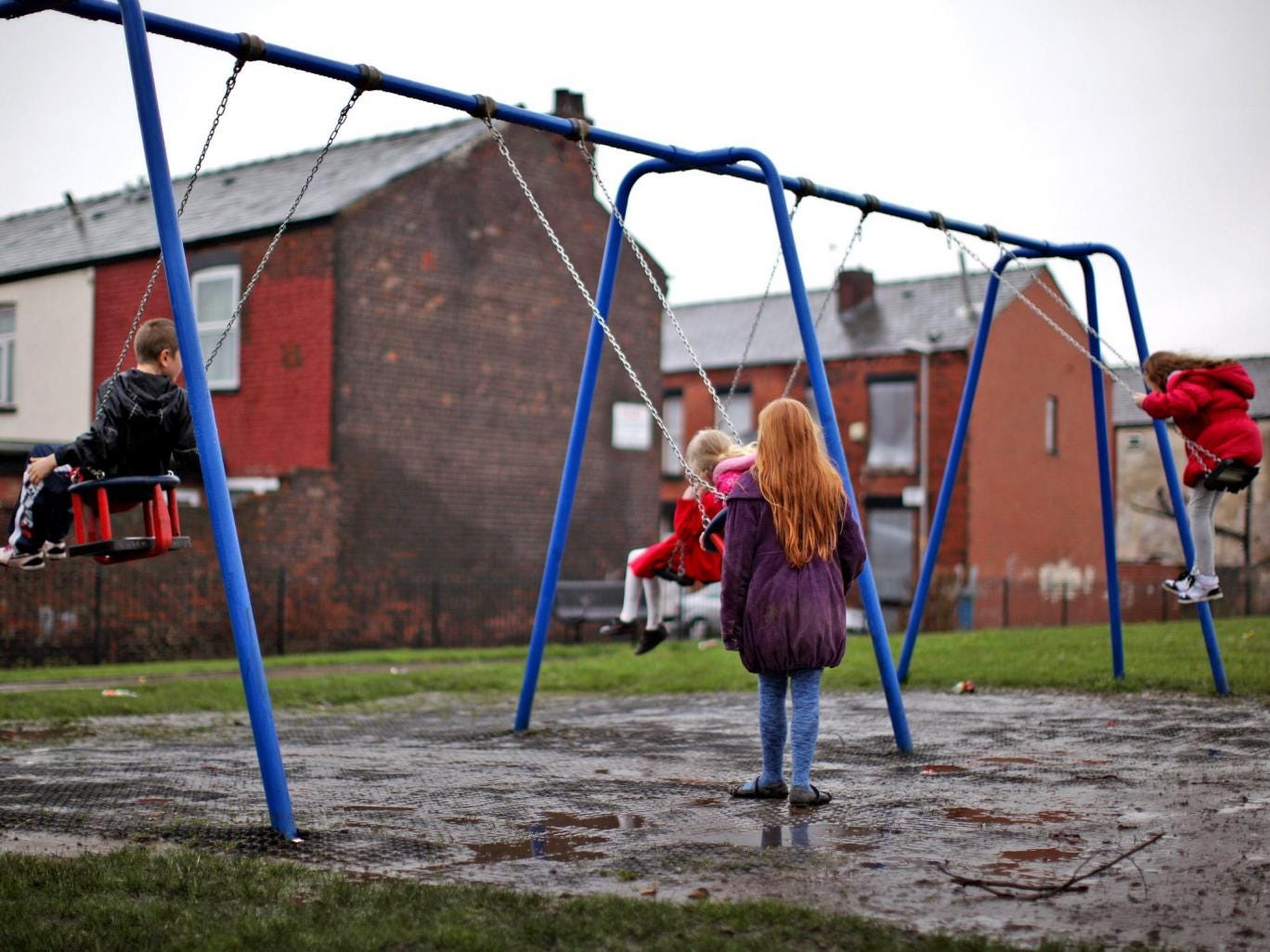
A joint study by Landman Economics and the Fabian Society says policies introduced since the election will increase long-term poverty
Another two million UK children will be living in poverty in 15 years time if the Government continues its current policies, a new analysis has said.
The calculations by Landman Economics and the Fabian Society however suggest that the incomes of the richest will increase significantly over the same period.
The study of policies introduced since the 2015 general election and their impact over the long-term if left unchanged found that the proceeds of any growth will overwhelmingly be distributed to the country’s richest, the report’s authors say.
They point out that cuts to in-work benefits scheduled to come in with the new Universal Credit system will reduce the income of the poorest workers, and that the National Living Wage will do little to offset these cuts.
The total number of people in poverty is expected to rise by 3.6 million with 1.9 of that increase being children.
This amounts to 22 per cent of all people living in poverty, up from 20 per cent.
The incomes of the bottom 10 per cent in society are expected to rise by only £90 by 2030 – while the incomes of the top 10 per cent per cent are expected to be £14,500 higher.
Previous analyses and official figures have shown some Government policies having a detrimental effect on the welfare of the poorest.
Rough sleeping rose by 55 per cent under the Coalition government, according to official figures. David Cameron said during the election campaign it was down, however.
Food bank use also grew dramatically during Mr Cameron’s first five years, with a million people now reliant on the charitable orgnaisations. The Government says this is because it is signposting more people to the services, including at Jobcentres.
The Government has met its child poverty targets but Work and Pensions Secretary Iain Duncan Smith has moved to scrap the current measure. Ministers claim the current target does not accurately reflect material poverty.
Andrew Harrop, the general secretary of the Fabian Society, said the distribution of wealth was a political choice the the Government made.
“If decisions made this year go unchanged, more British children will be hungry at Christmas 2030 than today,” he said.
“We will live in a country where food banks are an entrenched part of everyday life, not a response to short-term crisis. Is that the gift we want to leave the next generation?
“In the 15 years up to 2009 the incomes of rich and poor increased in proportion to each other because the Labour government chose to share the proceeds of growth.
“In contrast, the current government has chosen to cut taxes for people near the top of the income distribution and cut social security for people at the middle and bottom.”
The Chancellor George Osborne has delayed the introduction of its cuts to in work benefits by cancelling cuts to tax credits laid out in the summer budget.
However, similar cuts are scheduled to apply to Universal Credit – a new benefits system the Government wants all claimants to eventually use.
Alan Milburn, who chairs the Social Mobility and Child Poverty Commission, on Sunday warned that the current policy on in-work benefits would “merely defer the pain” for low-income families.
“As the economy strengthens, the Government should look to reverse cuts to universal credit so that this key welfare reform can improve work incentives. It should take the opportunity in 2016 to set out a timetable for doing so,” he said.
No comments:
Post a Comment